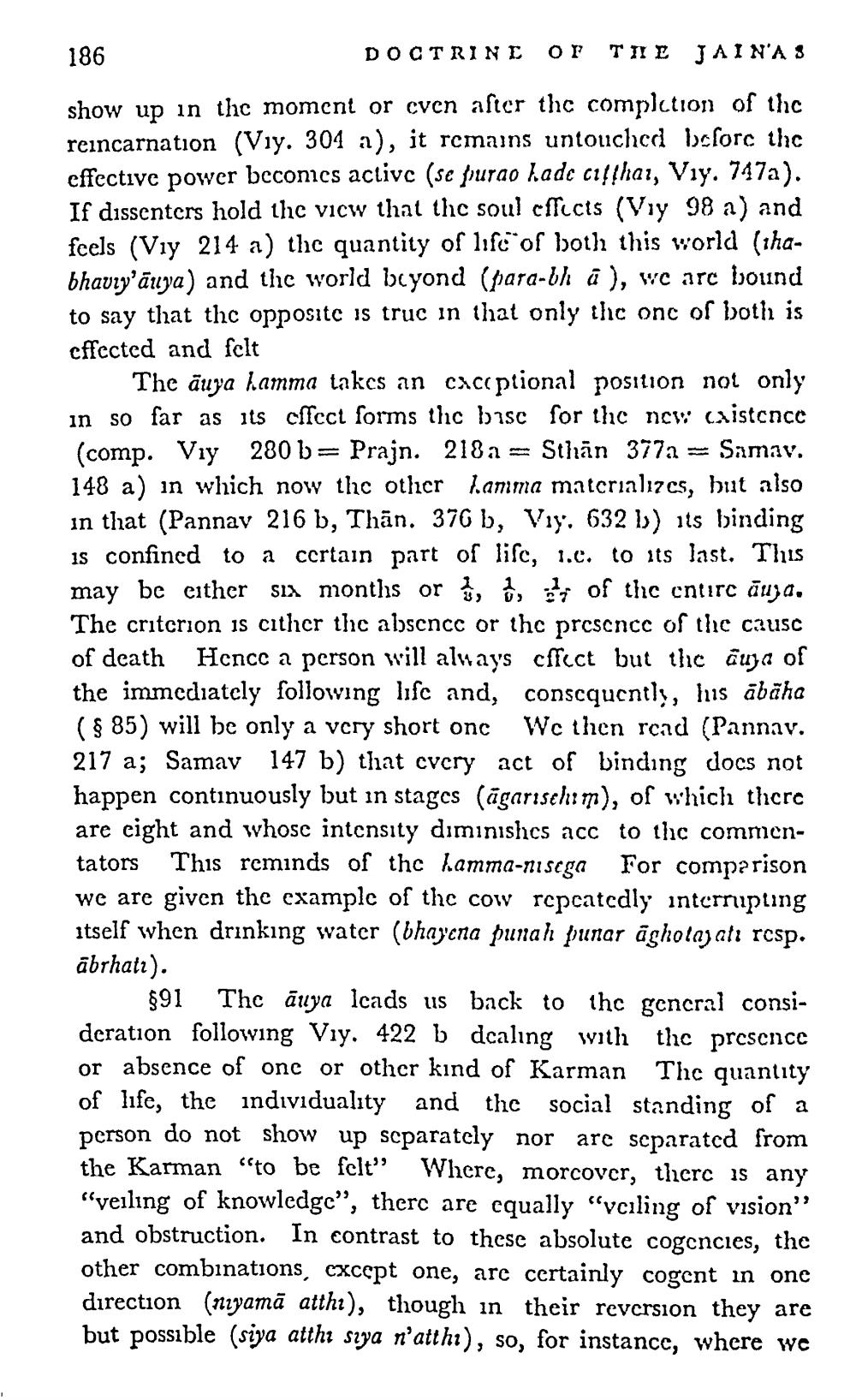________________
186
OF THE JAIN'A S
show up in the moment or even after the completion of the reincarnation (Viy. 304 a), it remains untouched before the effective power becomes active (se purao hade citthai, Viy. 747a). If dissenters hold the view that the soul effects (Viy 98 a) and feels (Viy 214 a) the quantity of life of both this world (thabhavy'auya) and the world beyond (para-bh a), we are bound to say that the opposite is truc in that only the one of both is effected and felt
DOCTRINE
The auya hamma takes an exceptional position not only in so far as its effect forms the base for the new cxistence (comp. Viy 280 b= Prajn. 218a Sthan 377a= Samay. 148 a) in which now the other hamma materializes, but also in that (Pannav 216 b, Than. 376 b, V1y. 632 b) its binding is confined to a certain part of life, 1.c. to its last. This may be either six months or 1,, of the entire auja. The criterion is either the absence or the presence of the cause of death Hence a person will always effect but the duya of the immediately following life and, consequently, hus ābāha (§ 85) will be only a very short one We then read (Pannav. 217 a; Samav 147 b) that every act of binding does not happen continuously but in stages (āgarisehim), of which there are eight and whose intensity diminishes acc to the commentators This reminds of the hamma-nisega For comparison we are given the example of the cow repeatedly interrupting itself when drinking water (bhayena punah punar aghotayati resp. abrhati).
$91 The auya leads us back to the general consideration following Viy. 422 b dealing with the presence or absence of one or other kind of Karman The quantity of life, the individuality and the social standing of a person do not show up separately nor are separated from the Karman "to be felt" Where, morcover, there is any "veiling of knowledge", there are equally "veiling of vision" and obstruction. In contrast to these absolute cogencies, the other combinations, except one, are certainly cogent in one direction (nyama atthi), though in their reversion they are but possible (siya atthı sıya n'atthi), so, for instance, where we




